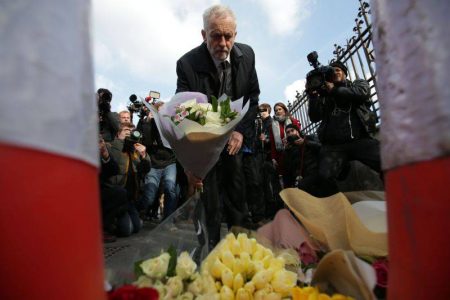
Liberal professors deadly delusions about curing terrorists
The British filmmaker Chris Morris has made a career of depicting the inanities and idiocies of jihadis or the agencies that try to track and ensnare them. If he wanted to do the same for his own political tribe-the liberal-left, broadly conceived—he could do worse than to set it in an august academic institution run by well-meaning progressives who believe that everyone, even convicted jihadis who once professed to love death more than life, can be reformed and brought back into the liberal fold.
At this institution, former and current prison inmates would be invited to attend a course with university students to share their experiences about the criminal justice system. The course would be informed by criminological wisdom and cutting-edge research that bravely pushes back against repressive models of criminal justice.
But then a convicted jihadi is invited to a special workshop to share with the students his personal truth and speak to the profound traumas he has experienced at the hands of the British criminal justice state. The audience listens patiently to his sad tale, empathizing with his plight as he recounts the challenges of living as a devout Muslim in a deeply Islamophobic society. In return, he goes on a terrorist rampage, a mere two hours after a group discussion on marginalized voices in neoliberal societies.
Who would make such a clunking and implausibly conceived satire? The answer is that no one would make it, because its fantastical and politically incorrect plotline climaxed in real time last Friday, when Usman Khan, a 28-year-old British national who was released from prison on parole in December 2018, after serving eight years for terrorism offenses, butchered two people to death with a machete at an event near London Bridge; earlier that day, and at the same site where he launched his attack at around 2 p.m., he had attended an alumni celebration event hosted by the organizers of Cambridge University’s Learning Together program, having been invited to share his experiences as a former prisoner.
Khan’s victims were Jack Merritt, who was the coordinator of the Learning Together program, and volunteer Saskia Jones.
What does criminological and educational theory have to instruct us about men like Usman Khan? Having taught criminological theory for many years, I can attest that it has very little to teach us about such individuals, other than a sort of negative (liberal) wisdom: Don’t stigmatize; don’t judge; don’t label.
It tells us that moral character is a bourgeois fiction or social construct, that prison is inhumane, and that offenders should be given a second chance and helped, given the supposedly systemic obstacles that so many have faced. And it has next to nothing to say about the criminal justice response to a category of person who believes that anyone who doesn’t follow the literal word of God, as set out in their favored religious texts, should be ritually slaughtered.
My own university at Kent, where I lecture in criminology, runs a similar course to the Learning Together one, titled Inside-Out. It is decent and popular and well run, and I know from direct experience just how beneficial such an initiative can be for everyone involved. Criminology students gain a practical understanding of what prison is like from the perspective both of those who run prisons and those who must reside in them, and prison inmates learn how to interact with non-inmates and engage with intellectual materials.
But clearly not everyone is a suitable candidate for such a course. And some will no doubt be highly unsuitable: notably, pedophiles, rapists, and recently convicted terrorists. Quite what Khan was doing anywhere near the Learning Together program is unclear, and the Institute of Criminology at Cambridge will need to account for this and much else to do with their program.
The bigger question raised by Khan, who was killed by police as he fled the scene of his attack, is about redemption and whether it’s either right or prudent to give convicted terrorists a second chance. I do not think I’m exaggerating when I say that the consensus among my liberal criminology colleagues both in Britain and the United Sates is that everyone should be given a second chance, especially Muslim males who may have had limited life chances to begin with.
I have some degree of sympathy for this view, but it needs to be massively tempered with a keen sense of not just what is right but also what is prudent. And prudence dictates that we have prisons, and that some offenders, because of the magnitude of the wrongs they have committed or because of the threat they pose, should never be allowed to leave them, and that the most serious offenders who are permitted to leave after they have served their sentences should be subject to the most scrupulous review and oversight.
Khan was beyond the pale and he should never have been at liberty to walk the streets, much less to share his truth: He served less than half his custodial sentence and then went on to slay those who saw the best in him. If this doesn’t make him beyond the pale, then there is no such thing as beyond the pale.
Of course it is easy to say this in retrospect, and it would be wrong and impossible to imagine a criminal justice system that doesn’t afford serious offenders the chance to reform and return to society. But terrorism offenders present a special case, given the severity of the threat they pose, and the interests of public safety must be carefully weighed against the rights of the offender.
Source: Foreign Policy





